Fuel prices likely to fall as FEC renews naira-for-crude deal- Marketers
Oil marketers have stated that Nigerians will soon heave a sigh of relief as the pump price of Premium Motor Spirit, popularly called petrol, will drastically reduce due to the continuation of crude and refined product sales in the naira initiative by the Federal Government.
They also stated that a major player in the sector, Dangote Refinery, is anticipated to lower its petrol loading costs by the end of this week, further contributing to the reduction in fuel prices.
The National Publicity Secretary of the Independent Petroleum Marketers Association of Nigeria, Chinedu Ukadike, reassured the public of the forthcoming price drop while commenting on the Federal Executive Council’s directive regarding the naira-for-crude agreement, announced on Wednesday.
The official, however, couldn’t project the expected amount as the price at which the government will sell its products remains unclear.
This was as the National Publicity Secretary of Crude Oil Refinery-owners Association of Nigeria, Eche Idoko, emphasised the need for greater involvement of other local refiners in the initiative, stressing that broader participation would enhance the economic benefits and strengthen the impact of the deal.
On Wednesday, the Federal Executive Council, after an initial delay, directed the full implementation of the suspended Naira-for-Crude agreement with local refiners.
It said the initiative with local refineries is not a temporary measure but a “key policy directive designed to support sustainable local refining.”
The Ministry of Finance disclosed this in a statement published on its official X handle titled, “Update on the Crude and Refined Product Sales in Naira Initiative.” The statement was released following a meeting on Tuesday between the Minister of Finance, Wale Edun, and representatives from Dangote Refinery, a major beneficiary of the agreement, to review progress and address ongoing implementation matters.
The meeting was attended by Edun, the Chairman of the Implementation Committee; the Chairman of the Technical Sub-Committee and Chairman of the Federal Inland Revenue Service, Zacch Adedeji; the Chief Financial Officer of Nigerian National Petroleum Company Limited, Dapo Segun; the Coordinator of NNPC Refineries; Management of NNPC Trading; representatives of Dangote Petroleum Refinery and Petrochemicals.
Also present were representatives of Dangote Petroleum Refinery and Petrochemicals, the Nigerian Upstream Petroleum Regulatory Commission, Nigerian Midstream and Downstream Petroleum Regulatory Authority, Central Bank of Nigeria, Nigerian Ports Authority, Afreximbank, and the Secretary of the Committee, Hauwa Ibrahim.
As part of moves to reduce the strain on the US dollar and guarantee price stability of petroleum products, the FEC in July 2024 directed the national oil company to sell crude oil to Dangote Refinery in naira and not in United States’ greenback for an initial phase of six months.
The sale of crude oil and refined petroleum products in naira to local refineries commenced on October 1, 2024 to improve supply, save the country millions of dollars in petroleum products imports, and ultimately reduce pump prices.
However, in March, Dangote refinery said it had temporarily halted the sale of petroleum products in naira. The refinery said the decision to halt sales in naira was “necessary to avoid a mismatch between our sales proceeds and our crude oil purchase obligations, which are currently denominated in U.S. dollars”.
Immediately after the announcement, private depot owners effected an increase in loading cost and effectively raised pump price from around N860 to about N960 per litre, making consumers pay at least N70 more than what it used to cost them to buy a litre of the premium commodity days earlier.
But in a fresh update on Wednesday, the committee said the policy is not temporary but a long-term plan to cut Nigeria’s dependence on foreign exchange for petroleum.
It added that the initiative is not a temporary or time-bound intervention but a key policy directive designed to support sustainable local refining and bolster energy security.
The statement read, “The Technical Sub-Committee on the Crude and Refined Product Sales in Naira initiative convened an update meeting on Tuesday to review progress and address ongoing implementation matters.
“The stakeholders reaffirmed the government’s continued commitment to the full implementation of this strategic initiative, as directed by the Federal Executive Council.
“Thus, the Crude and Refined Product Sales in Naira initiative is not a temporary or time-bound intervention, but a key policy directive designed to support sustainable local refining, bolster energy security, and reduce reliance on foreign exchange in the domestic petroleum market.”
The policy, which mandates the transaction of crude oil and refined petroleum products in Naira, is aimed at strengthening the country’s economic sovereignty, enhancing local refining capacity, and stabilising the foreign exchange market by reducing the demand for dollars in domestic petroleum transactions.
The ministry explained that this policy is structured to foster energy security and encourage investment in domestic refining infrastructure.
While acknowledging that the transition involves complexities, the government admitted that existing challenges are being systematically addressed.
“As with any major policy shift, the committee acknowledges that implementation challenges may arise from time to time.
“However, such issues are being actively addressed through coordinated efforts among all parties. The initiative remains in effect and will continue for as long as it aligns with the public interest and supports national economic objectives,” the statement concluded.
Commenting, industry players said the resumption of Naira-denominated crude sales would reduce the strain on the US dollar and guarantee the price stability of petroleum products.
The IPMAN national publicity secretary, in his expert opinion, welcomed the recent development, noting that it reflects the President’s willingness to listen to stakeholders, which is a positive sign for the country’s energy sector. He said the deal was always expected to be implemented.
Ukadike said, “We have always mentioned that the deal was definitely going to be implemented. We don’t know the details of the new agreement. IPMAN welcomes the latest development and it shows Mr. President has listening ears with this kind of output from the government. It shows that inputs from individuals and stakeholders matter a lot. The policy doesn’t deter anyone who wants to import petroleum products. But the most important thing is that they should go ahead and ensure that the conclusion affects prices in the market.
“With this new decision taken by the government, I also believe earnestly that just with the complaint of marketers crying of huge losses caused by a sudden drop in price. Their plea is also yielding fruit.”
He added that with the positive development and recent fall in the price of crude, the 650,000 is poised to reduce its loading price downward before the end of the current week.
“I believe that from now till the end of the week, the Dangote refinery will come up with a new price. They can’t complain of having old stock because that is not the best practice internationally.”
On his part, CORAN national official Eche Idoko welcomed the news that the policy would be permanent but urged the government to ensure its full implementation, particularly in its inclusion of all local refineries.
Idoko described it as one of the most effective strategies of the current administration to stabilise the local economy amid recent global economic challenges.
He said, “CORAN welcomes the idea of the new information on the continuation of the naira for crude policy as we have always maintained it is one of the most potent policy of this administration in trying to stabilise the local economy and in the event of recent happenings in the global economy. It has become more expedient to pursue this policy as it seems to protect the emerging refining industry in Nigeria.”
However, CORAN pointed out that the pilot phase of the policy, which was initially extended only to Dangote refinery, fell short in certain areas. The group noted that the total allocation earmarked for the naira-for-crude initiative was not fully implemented during the pilot phase, which raised concerns.
“We hope that in this new phase, the remaining five refineries that are refining in Nigeria would be included, and more importantly, this crude would be made readily available for them, so that we can maximise the advantage that comes with refining locally, especially when everyone is moving towards self-dependence and self-sufficiency in production,” Idoko added.
The Petroleum Products Retail Outlet Owners Association of Nigeria shared the same opinion, requesting that all refineries be allowed to benefit from the naira-crude deal instead of restricting it to Dangote Refinery.
The National President of PETROAN, Billy Gillis-Harry, stated this in an interview with one of our correspondents on Wednesday.
He said, “We are delighted and we congratulate the President and the Federal Executive Council for looking into what should make Nigeria better. As far as we are concerned, the naira-for-crude is a critical component of how Nigeria’s economic growth will fare. So, PETROAN is very happy about it. We hope it will be well implemented with all the i’s dotted and the t’s crossed.
Gillis-Harry said Nigeria could run a better economy with the policy and ignore the tariffs of the United States President, Donald Trump.
“Let us give the benefit of the doubt to the Federal Government, the Ministry of Petroleum Resources, the Ministry of Finance, and all the members of the technical committee to come up with what is needed to ensure that we run a better economy and give a bluff to America with all this noise that has been coming from Donald Trump. If we are running our economy by ourselves, we do not need to bother about him. And that is what PETROAN will always advocate for, that we run our internal economy efficiently and grow our economy robustly to ensure that Nigerians live well above the poverty level,” he said.
The PETROAN boss added that crude oil should be sold to other refineries in naira to give Nigerians affordable fuels.
“The policy is for every refinery. To my knowledge, it is not only for one refinery. It is for all refineries in Nigeria – NNPC refineries, Azikel in Bayasa, Edo refinery in Benin, Niger Delta refinery in Ahola, Walter Smith in Owerri, and other refineries that are coming up, including BUA refinery. So, it is not selective. It is for all refineries, to my knowledge. And that is what we advocate, that it should be implemented in every refinery so that all refineries will sell to us at an affordable price and ensure that there is energy security,” he added.
He maintained that price fluctuation would be a continuous exercise until an average is observed.
“We cannot wake up and say our price will be like this, so that price will come down based on the economic environment,” he added.
While commending Tinubu for the initiative, he appealed to him to address the hunger in Nigeria.
“We congratulate the government. Anybody can say what they want to say, but we believe President Tinubu has good intentions for this country. What we are watching is that there is hunger in the land, there is a lot of suffering, and those things need to be addressed very drastically and very quickly, too.
“Those people who are hungry don’t listen. We do not want any errors. So, we still ask Nigerians to be patient and be enduring, and let all of us make collective sacrifices to ensure that this country becomes a greater one,” he submitted.
The Vice President of IPMAN, Hammed Fashola, described the move as a good development.
“It is a good development; it is what we have been telling the government that it should be sustained because it would bring a lot of benefits and make the price stable. Once that happens, the price of fuel will come down, and this is good for Nigeria.
Fashola said the naira has been losing its value since the Dangote refinery cancelled the naira-for-crude deal, saying that was why the price of fuel remained high in Nigeria despite the crude price crash.
He said Nigerians should expect a drop in fuel prices, adding that the suspension of the policy caused the surge in prices after the Dangote refinery halted the sale of petrol in naira.
“Now that the naira policy has been restored, we expect a reverse in the price,” Fashola said.
Punch
![]()

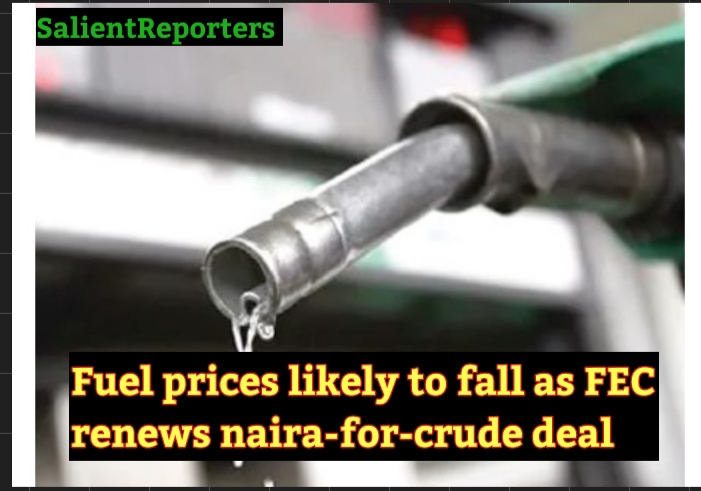


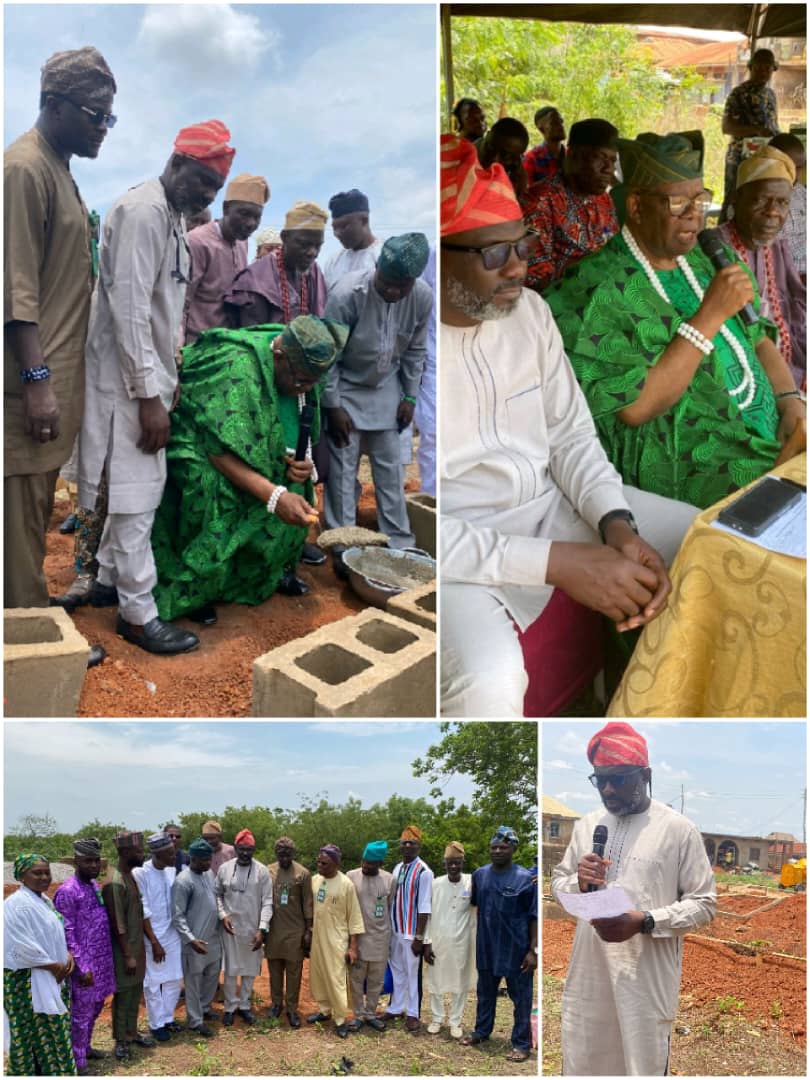



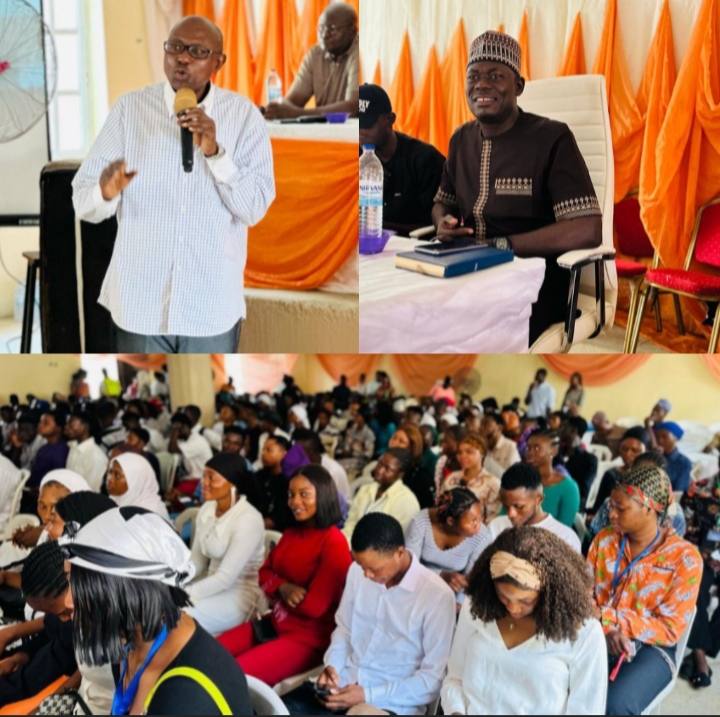
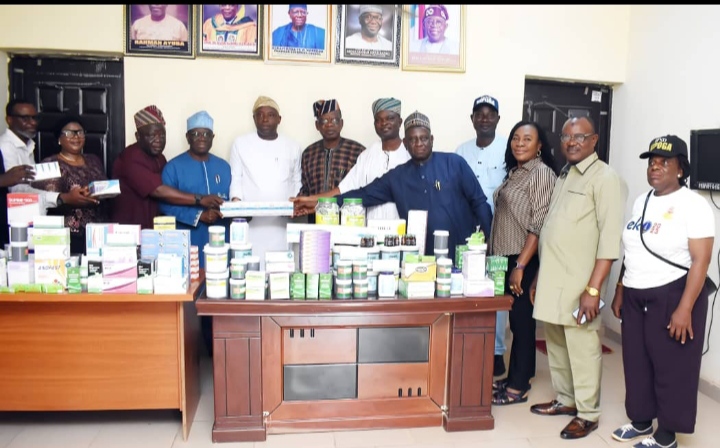
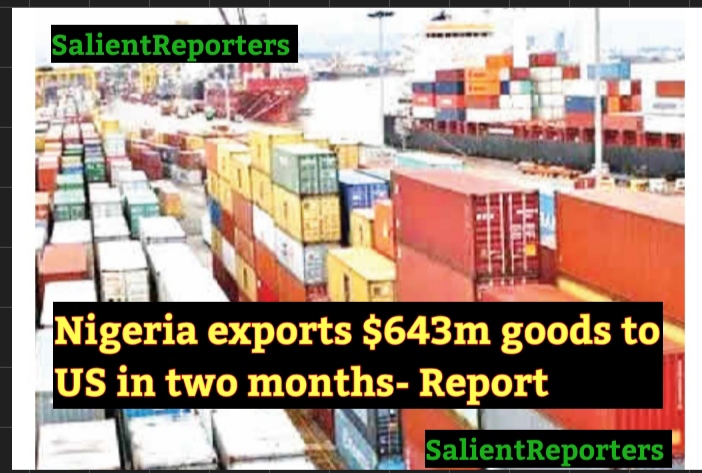
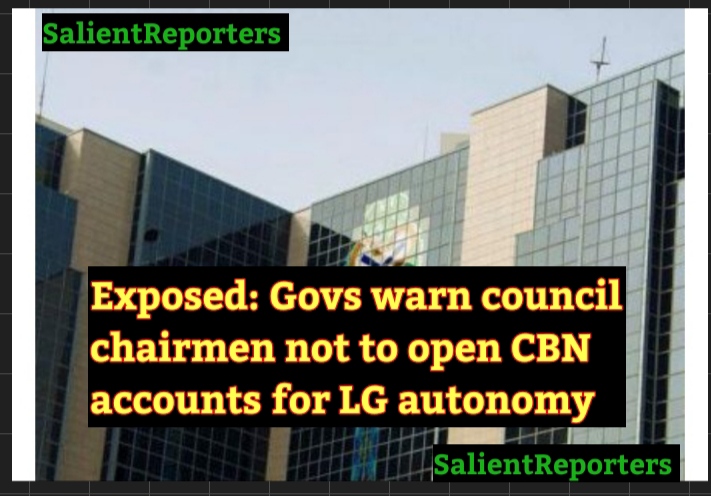
Leave a Reply